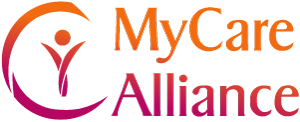Consider expert guidance and move forward at your own pace
Shirley felt unsettled after ending the call with her adult son, Kyle. He had talked excitedly about their state’s announcement that the stay-at-home order had been lifted and that residents could assemble if they adhered to social distancing. He, his wife and their teenage children were eager to take her and his father, Louis, who had moderate dementia, to their favorite restaurant. How soon could they go? he’d asked.
But Shirley had misgivings. She didn’t know how to reconcile the TV images she saw nowadays of joyful, mostly mask-free people packing parks and beaches with the online reports she read about nursing home residents, little older than she, dying of COVID-19. She wanted to have fun, too, and couldn’t wait to see her grandchildren in person again but wondered if it was truly safe for people like her and Louis to return to normal life. He had diabetes and high blood pressure, as well as his dementia. She had the early stages of COPD, from having been a heavy smoker in her youth. Weren’t those the kinds of chronic diseases that doctors said made people more vulnerable to infection? Was the time right to take a chance?
Many Americans are struggling with similar questions. These decisions are more pointed and consequential, however, for family caregivers. They must think about not just their own safety but that of their loved ones, who may no longer have the judgment to choose for themselves. That’s a weighty responsibility. What if a caregiver makes the wrong choice? How guilty would she feel if the care recipient became sick and died? Would other family members respond with sympathy or blame?
These are personal decisions with no clear-cut answers. All family caregivers will have to consider the pandemic’s spread in their immediate vicinity, their loved ones’ specific health conditions, the level of contact they’d consider having with others, and their degree of tolerance for risk. With so much uncertainty about the coronavirus’s course in the months ahead, they will also have to be prepared to change tack according to evolving circumstances. What process should caregivers use to make these difficult decisions? Here are some thoughts.
Start with medical advice
Health care professionals are inherently cautious — “First, do no harm,” they’re famously taught — so soliciting their opinions about what’s safe and what’s not is a good place to start. They don’t decide what you should do; you do, based in part on the guidance they provide and the needs you and your care recipient have. But if they know you and your loved one well and give their blessing to venturing out of the house to reunite with family, then it is likely prudent.
Consider available information
Nowadays the airwaves are filled with politicians and public health experts imploring you to do one thing or another to safeguard your health, bolster the economy or support your neighbors. All this should be taken under advisement. You should weigh the information and perspectives they provide as but one factor in your determination of what works best for you and your family. They are not the last word on your situation.
Weigh risks and benefits
There’s no great secret to making a list of pros and cons of a course of action and then deciding which side of the ledger is more persuasive to you. It’s just that most of us don’t go to that much effort usually. But this is too big a decision for you to shoot from the hip. Slow your decision-making down. Deliberate. Sleep on your thoughts. If you are uncomfortable making any changes, then stay put for now.
Use family as a sounding board
Once you have a strong inkling about whether and how you and your loved one will resume activities outside of your home, you may want to confer with close family members to get their feedback. They may have many opinions about what you should do and when, but, again, it is you who will decide. Nevertheless, their agreement to honor your choice will make it easier for you to implement any decision you make — and they won’t pressure you further to go out to restaurants unless you’re ready.
Reserve the right to change your mind
In all instances, the best caregivers are flexible and creative problem-solvers. During this pandemic it is no different, though the stakes are higher. As the public health situation unfolds, wise caregivers will frequently assess what’s going on, plan and adjust as needed and reverse course if necessary. Safety is always paramount — but trusting your own judgment is essential.

